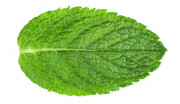1. Go Green
Adding a bit of green to your pet’s diet is good for your dog or cat. Eating more vegetables has many heath benefits -one important one being decreasing cancer risk. Cats often like cooked asparagus while our easier to please canine friends love a broccoli stem bone. Go green outside as well by using natural fertilizers for the yard, avoiding herbicides and using natural flea and tick control.
2.Nurture with Nutrition.
As conscientious consumers we tend to review ingredient lists for our food and need to do the same for our pets. Look for labels that state ingredients as chicken, beef or lamb and not poultry by-products or beef by-products, etc. Choose superior brands of pet foods that promise healthier ingredients. When you’re in the mood you can add some good ol’ home cookin’ for your best friends. It’s easy and fun to make delicious treats at home. Dr. Khalsa’s Natural Dog book is filled with delicious recipes and nutrition tips.
3. Security with Supplements
I like to think of vitamins and minerals as a form of supplemental health insurance for pets, providing the nutrients needed to maintain health. A daily balanced and complete supplement is the most valuable contribution you can make toward increasing your pet’s longevity. To be truly effective, both the vitamins and minerals need to be balanced, complete and able to be absorbed. Read and compare labels carefully. Choose vitamins that state the milligrams or International Units on the label and contain high quality ingredients.
4. Heal Holistically
Holistic treatments can be powerful tools that compliment and enhance the body’s innate ability to rebalance and restore itself, thus helping your pet to overcome illnesses and diseases.
Holistic medicine provides gentle but effective guidance that can remedy many diseases and health problems without the side effects so often associated with more conventional forms of medicine.The holistic experience creates a wiser and stronger body, more able to maintain and retain health.
5. Quality Time and Exercise
Both dogs and cats are social animals. Social animals don’t want to be alone- they want company and interesting interactions.
Relationships are an important part of health. Strong bonds with others means protection from loneliness and depression. It goes both ways. Healthier pets are happier pets and happier pets are healthier pets. Just as vitally important is that both humans and pets benefit from the quality time spent together.
If it’s not safe for your cat to go outside every day, make sure he has a scratching post and a selection of toys. All dogs need exercise, even notorious couch-potato breeds. Of course, taking the dog for a brisk long walk is the perfect excuse for you to get some exercise too!
6. Routine Medical Examinations
A yearly health check will help detect problems before they become serious. Older pets should get yearly blood panels to monitor their health.
7. Vaccinate Minimally and with Care
Your new puppy or kitten may be stressed – particularly if he came from the pound. Take him in for his vaccinations when his systems are strong and balanced. The latest in vaccination schedules calls for vaccines every three years, if that.
Dr. Deva Khalsa, VMD

 About Dr. Khalsa
About Dr. Khalsa